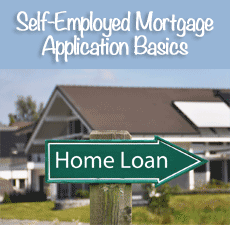 Information Is The Key For Self-Employed Borrowers
Information Is The Key For Self-Employed Borrowers
Independent professionals and freelance workers lack the paperwork that lenders rely on to determine the financial condition of employed applicants. About six percent of the non-agricultural workforce is self-employed. When self-employed people want to purchase homes, they find that they live in a different financial world than the general home-owning public. So, as an independent worker, determined to buy a home, what do you do?
Take The Long View And Maximize Two Things
One lesson that you may have learned working for yourself is that you must be deliberate in your actions and careful in your choices. That mindset will serve you well in finding home loan funding, as with all things. Unless you just happen to meet the financial conditions lenders demand from self-employed borrowers, you will have to plan ahead and do the things that will get you to the point of qualifying for homeownership.
Line up your income and assets to show that you can handle a mortgage, and be prepared to make twice as many applications as employed loan applicants; even with higher levels of income, self-employed borrowers get turned down more often.
It’s All About Filing Your Taxes
The main feature of self-employment is that you receive all of your income directly from customers, which means you do not have an IRS W-2 from any employers. A W-2 is one of the primary ways that lenders determine the income of employed mortgage applicants.
Your tax filings are the most consistent and authoritative documents you generate as a self-employed person. Lenders will request that you can show at least two years of tax history to include Schedule C of your Federal Income Tax filings. If you own an S corporation or a partnership, you will need your Schedule K-1 to show your income.
Demands From Lenders
Higher down payment – Lenders will wish to see that you have a slightly lower loan-to-value ratio, which means a larger down payment.
A high credit score – Your FICO Score will need to be higher, anything under 700 and you will find that your offers look more like high-interest, sub-prime loans.
Low debt-to-income ratio – You need to be able to make your monthly obligations to creditors comfortably, based on your income and your repayments.
Reserves in the bank at closing – Lenders will want you to have enough liquid assets as reserves after the loan closes. You will need six months or more in reserves, or more.
Financial documents – You will have to include your Schedule C or Schedule K-1 for the previous two years as well as Profit and Loss statements that detail your income and expenses. If you have other sources of earnings such as rental properties, expect to produce the relevant documents that support your case.
A Symbol Of Successful Self-Employment
Time your application to coincide with two good years, preferably showing an upward trend in your income. Save up for a deposit and closing costs, and for ample reserves after closing as well. Finally, start shopping for lenders that appreciate the value of entrepreneurs, freelancers, and independents; you may get turned down more than the wage-earning public, but you will find the right one soon enough.



About The Author: Kenneth Le
More posts by Kenneth Le